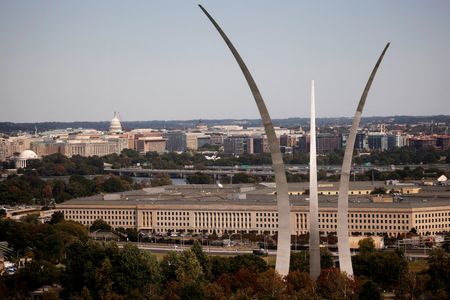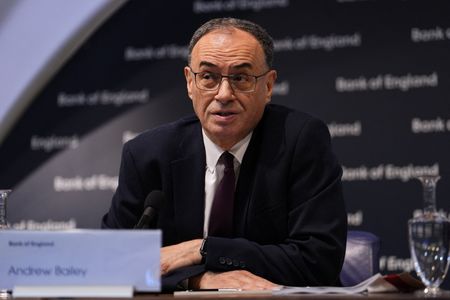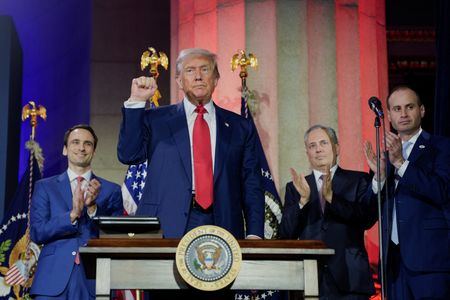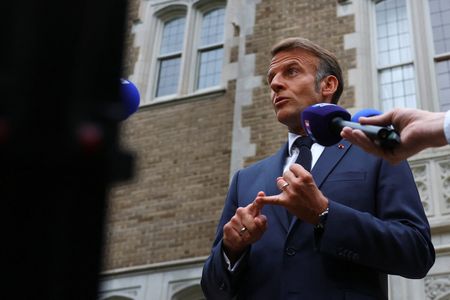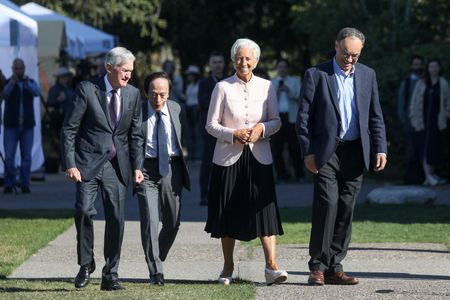By David Milliken and Suban Abdulla
LONDON (Reuters) -Bank of England Chief Economist Huw Pill said on Friday that an expected rise in inflation this year would probably not lead to second-round price pressures, but that recent strong pay growth was a reason for “caution” towards future interest rate cuts.
Pill said he was surprised by data that had shown a 6% increase in private-sector wages, excluding bonuses, in the three months to November, describing the figure as “a little bit aberrant”.
Other wage measures also appeared to have plateaued at a level higher than was consistent with inflation returning to its 2% target, he said.
“I think that is a reason for caution, for carefulness in the way we proceed with removing monetary policy restriction and cutting bank rate,” he told businesses, a day after the BoE cut its key rate to 4.5% from 4.75%.
Pill voted with most of the Monetary Policy Committee to cut the rate by a quarter-point, but two members voted for a half-point reduction.
Pill said underlying domestic price pressures were moving in the right direction:
“Across the membership of the MPC, the story is one where disinflation is proceeding, interest rates can come down. The issue (is) of how far and how fast.”
The central bank on Thursday halved its growth forecast for this year to 0.75% and forecast inflation would rise to around 3.7% in the third quarter, not returning to its 2% target until late 2027.
Pill described this as a “blip” driven by one-off factors and less likely to lead to persistent inflation as the labour market was less tight than when prices last started to accelerate in late 2021.
“That blip probably will not have second-round effects … but there are risks to both sides and that’s something we have to remain quite vigilant about,” he said.
BoE Governor Andrew Bailey said he expected to be able to cut rates further, but that the bank would take a “gradual and careful” approach.
Minutes of February’s policy decision showed that some of the policymakers who backed the quarter-point rate cut thought the central bank should be cautious about cutting rates further due to the risk that higher inflation could be sticky.
(Reporting by David Milliken and Suban Abdulla; editing by William Schomberg)



